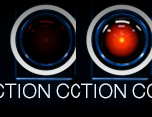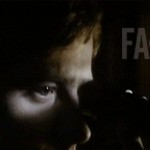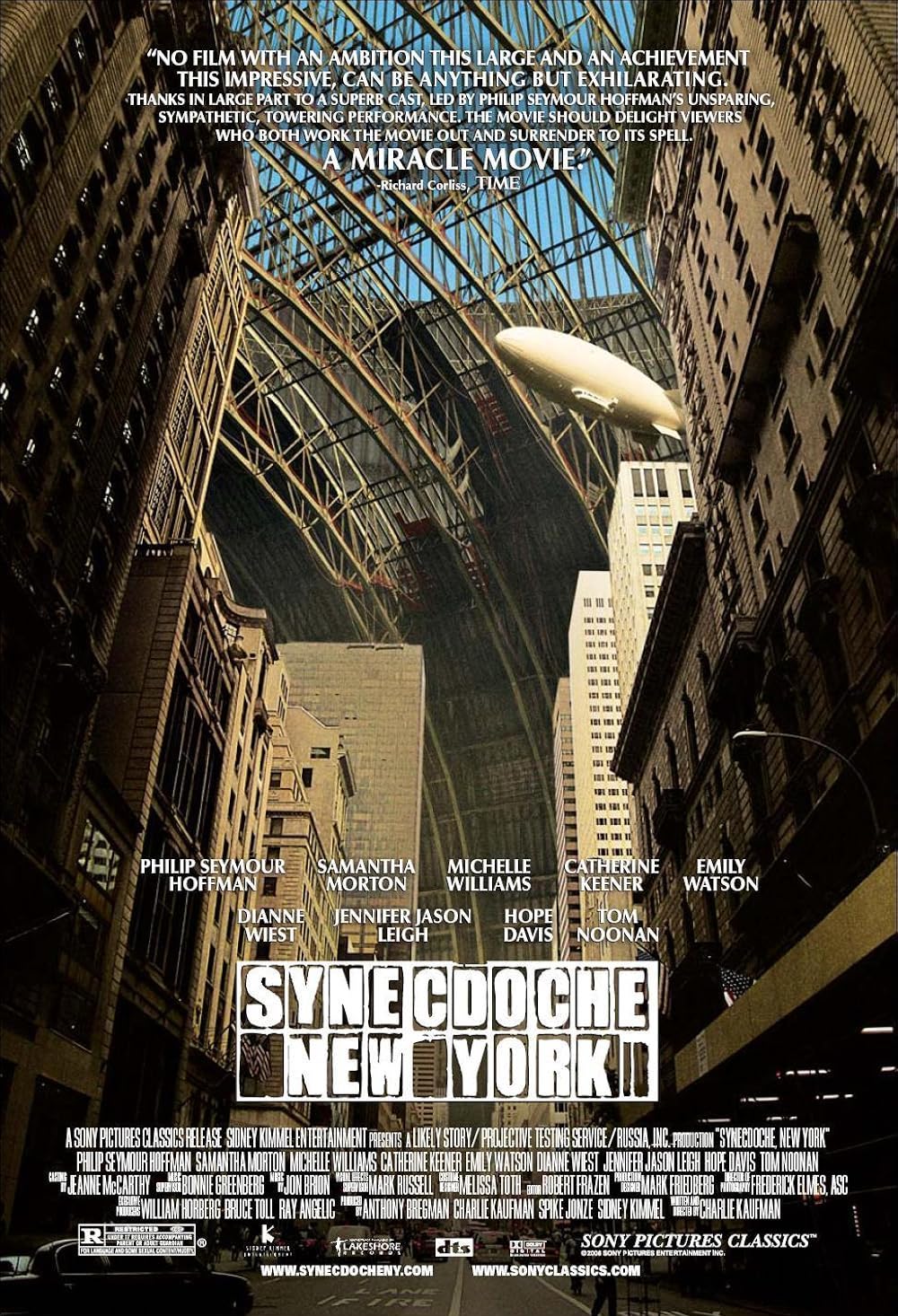Introduction to the VIFF Centre’s 21st Century Classic SYNECDOCHE, NEW YORK (2008)
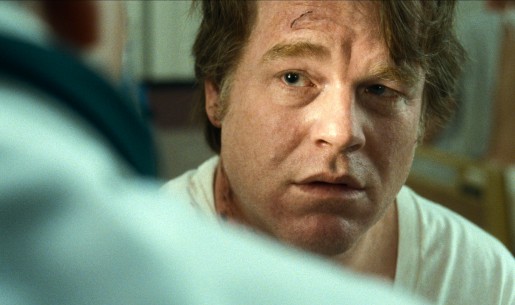
On the evening of August 30th, I volunteered to introduce the VIFF Centre’s screening of Charlie Kaufman’s film “Synecdoche, New York” (2008). This is my speech in its entirety.
Good evening, everyone.
I am very grateful that I get to introduce Charlie Kaufman’s film “Synecdoche, New York” (2008) tonight. Out of all the inspired films that were selected as part of the 21st Century Classics at the VIFF Centre, I agree that this extraordinary directorial debut by one of the most important voices working in cinema today is the one to close out the series.
This century is twenty-five years old and it’s begun to produce less collagen and lose its metabolism. I believe within the next seventy-five years that Charlie Kaufman will be regarded as one of the most influential thinkers of the 21st century. Having Kaufman’s films playing on the world cinema stage is just as novel as when Sigmond Freud and Carl Jung set foot in America and inevitably transformed the psyche of an entire nation. People will be thinking and talking about “Synecdoche, New York,” God willing, well after we’re dead.
It is quite extraordinary that a movie this profound and strange and challenging and raw and ambitious exists at all. There’s so much ingenuity and invention. Every ten minutes fulfills the promise, “You ain’t seen nothin’ yet!” A movie that doesn’t just circle around the abyss, but plunges wilfully into the abyss, damn the consequences. A movie so human that it really smarts. A movie so generous and overflowing with such charged and illuminating ideas. As the makeup artist played by Maggie Gyllenhaal in “Adaptation” (2002) would say, “It’s like a brain factory in here.”
For a movie that contemplates death and despair so deeply, its greatest achievement and contradiction is it makes you feel so alive. This film is about everything, especially the roles we play in our lives. The roles we desire and elect to play versus the roles we are ultimately condemned to perform, despite being miscast. There is a purpose at work as to why the film is so overwhelming on the first few viewings because it is to be experienced as David Lynch rationalizes, “Life is very, very complicated, and so films should be allowed to be, too.” As promised by Charlie Meadows – AKA Madman Mundt (John Goodman), Charlie Kaufman will “show you the life of the mind.”
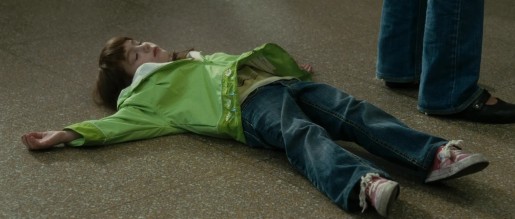
So very few films succeed, never mind take the leap forward, to express how tenuous the string of our mortality is against our valiant and most frustrated efforts to live our best lives. Yet “Synecdoche, New York” may be too successful in that vein for most people to endure, since Kaufman is wise beyond his years and he is at his most uncompromising and radical in his steadfast dedication to truth and human nature here. After all, great art is dangerous, and contrary to popular belief, very few people can handle it. “Synecdoche, New York” really does live up to the final line, the command that all great art expresses, from the famous Rilke poem, “You must change your life.”
Earlier this summer, I revisited the film “American Beauty” (1999) after so many years and I was taken aback by Kevin Spacey’s opening voice-over, “My name is Lester Burnham. This is my neighbourhood. This is my street. This… is my life. I’m forty-two years old. In less than a year, I’ll be dead.” My God, I am one year away from being Lester’s age. I was fifteen years old when I first saw that scene in 1999. That was the same year I was so intrigued by the movie poster for “Being John Malkovich” (1999) and all the audacious promises it made. This movie isn’t going to do what I think it’s going to do! It did! It blew me away in every respect. That was when I read the immortal credit, “Written by Charlie Kaufman” and here I am twenty-five years later, prepping you all for the masterpiece he directed.
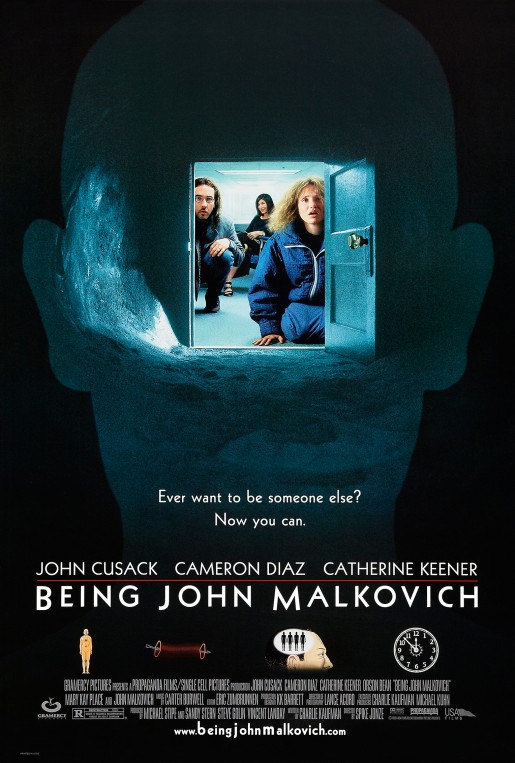
I was there on the opening weekend at the International Village Cinemas in October 2008 where the ticket taker scoffed that I was going to see “Synecdoche, New York.” I had never seen a ticket taker take so much sadistic glee as he told me, “This movie is fucked! No one is coming to see this shit!” Did this movie run over his cat? Take a piss in his corn flakes? This only elevated my anticipation! It’s no wonder this polarizing film inspires so much enthusiasm here and animosity there. It cuts deep. And on every subsequent viewing since, I catch viewers looking so awestruck during the end credits that they practically levitate.*
As a formidable experience, “Synecdoche, New York” is profoundly spiritual and haunting. And so bitterly and knowingly hilarious. The more hard knocks you got in life, the better this movie gets. Kaufman, at his most mischievous, doesn’t just take us through The Looking Glass Darkly, we go through shards of broken funhouse mirrors. It should come as no surprise that this started out as a horror movie. But this is about the casual everyday horrors and indignities that mutate into fresh extremities. Clammy dread-inducing horror that infects the body, the mind and the outer limits. The sequence involving the scraps of paper with the director’s notes alone will mark you, no matter how many times you see it.
This movie knows where you live.
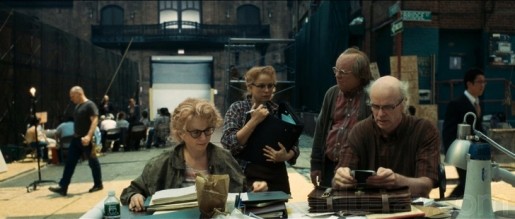
Out of all the philosophical concepts at play, I will single out one a few of you might have heard about in a Psychology class and maybe more of you may have heard from Hugh Grant in “Heretic” (2024): When you remember something in your past, it’s actually not your memory – it’s a copy of the original. You’re remembering the memory of your memory. Remember that again and that’s the memory of your memory of that memory. No wonder we’re burnt out. Our minds keep getting times squared. New York, New York, it’s a helluva town.
This movie did not do well commercially, despite the highest critical praise, and Kaufman’s prospects as a filmmaker were so dire that for the next several years, we were so close to treating his film the same way we wistfully marvel over Charles Laughton’s sole masterpiece “The Night of the Hunter” (1955). It is tragic for a such a talented filmmaker who goes to such great pains for his art. It is Charlie Kaufman’s hope, he states, “That there is another way to be in this world.” And he “believe(s) with courage, vulnerability and honesty that the stuff, the movies, we put into the world can serve a better purpose.”
Over the years, the film gained an outstanding cult following where it got voted #101 on The NYTimes Readers’ Top 100 Movies of the 21st Century: Sorry, Charlie, your film got beaten out by “Avengers: Endgame” (2019).
The late, great Philip Seymour Hoffman is awesome as the chronically neurotic, needy nebbish named Caden Cotard who goes days and even years not wanting to be Caden Cotard. (“Citizen Caden,” anyone?) Caden has entered the second half of his life where instead of adding more candles to his cake, it was be more honest to begin removing those candles with each ensuing year. As a theatre director at forty, Caden’s second act is pregnant with possibilities in art, women and legacy. He is also plagued by ailments, humiliation, confusion, doubt, and self-pity. And he wants so badly to do well by everyone, especially his audience and his wife. Fully committed, Hoffman makes such an unsettling skin to inhabit so compelling since he brings a volcanic life-force and tenderness to his most introverted performances.
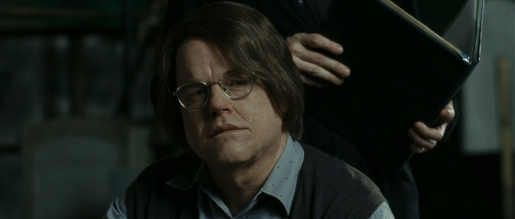
It is also significant to note that Hoffman played what many, including Steve Martin, call the very best portrayal of Willie Loman in the 2012 stage production “Death of a Salesman,” which inflicted so much pain on Hoffman in that three-month run that he confided to friends he needed to take a long break from acting on stage. When Hoffman passed away in 2014 at forty-six, it was such a shock that many of his fans, myself included, just could not believe he was really gone. The tremendous pressure of his presence was so indelible, the relief had never set once it faded away.
“Synecdoche, New York” is one of those special, piercing films where each time one of its cast members passes away, it will make the movie infinitely more poignant. This is true of “The Royal Tenenbaums” (2001) ever since Gene Hackman passed away last February at ninety-five. The same could be said of the audience choice for the 21st Century Classics series, “Parasite” (2019), since we lost Lee Sun-kyan so early in his life at forty-eight just a few days before 2024.
Every faculty of the film brilliantly conveys the slipperiness of time. Time is even misplaced like a sketch on paper or more aptly, a receipt paid in full. It is about the one shot we all have at life before it becomes another splat on the windshield of history. In “Magnolia” (1999), which just played on this screen, this view is contrary to what the dying man played by Jason Robards said to his nurse played by Mr. Hoffman: “Life isn’t short. It’s long!”
Not only will you witness the best damn speech ever set in a funeral, the actor who plays the pastor, Christopher Evan Welch, left this mortal coil eleven and a half years ago on February 2nd, 2014. Exactly two months after Hoffman died on December 2nd, 2013. Mr. Hoffman, at forty-one, and Mr. Welch, at forty-three, both had only five more years of life left after they shared that scene together and they didn’t know that at the time. The set they performed in was boiling hot inside of what used to be an armory. And there they were, despite the severe discomfort, making art in an armory.
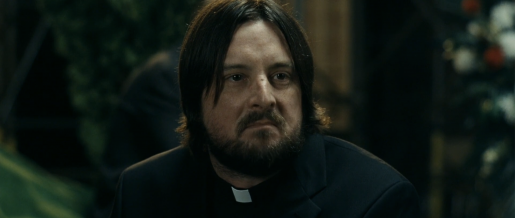
Why, just last week, Jerry Adler passed away at ninety-six. He played Caden’s father.
The reason the cinema endures as a habit, whether it be communal or private, is we cannot let go of our ghosts. Face it, the light on the screen is the closest we’ve come to materializing spirits. And it takes time for light to spread.
There is so much say about Tom Noonan who plays the Gaunt Man who shadows Caden Cotard. If you haven’t seen his film “What Happened Was…” (1994), you’ll realize it is a shadow that follows Charlie Kaufman’s films.
And then there’s the women in “Synecdoche, New York,” and it’s a shame I can’t talk about them or we’d be here all night. Kaufman is renown for writing such exemplary roles for women. Here we have Catherine Keener, Samantha Morton (“Yep.”), Jennifer Jason Leigh (in a poisonous performance), Parker Posey (No-No-No-No-No! No Parker Posey!), Michelle Williams, Emily Watson, Hope Davis, and Dianne Wiest** who are all so indispensable to the film’s emotional power that each one of their characters could easily walk away with the film and it would be just as fascinating. For instance, do check out the theatre play “Hope Leaves the Theatre” – it’s more of a radio play – that Kaufman wrote and directed in 2005. It’s on YouTube and it’s wonderful!
And I must single out two actresses who don’t get enough attention in “Synecdoche, New York”. She may be a child, but Sadie Goldstein is inspired playing off of Hoffman and Keener as little Olive. This was no surprise to me since two years ago she acted beautifully with Kate Winslet in Todd Field’s “Little Children” (2006), a film I would have moved mountains to place in the 21st Century Classics lineup.
And then there is Robin Weigert (yes, Calamity Jane in “Deadwood”) who is responsible for the most emotionally devastating moments with Hoffman – and all in the space of two unforgettable scenes.
And has anyone heard of the animated Dreamworks film called “Orion and the Dark” (2024)? It was written by Charlie Kaufman. It came out last year. It’s criminal that it’s lost in Netflix and barely anyone knows about it. “Orion and the Dark.” It’s magical and well worth your time.
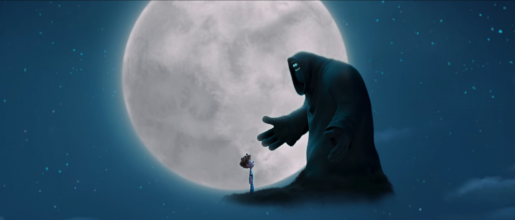
Kaufman, no stranger to hard, depressing truths made his bleakest prophecy last year at the Actors/Writers ( ) Strike about how the forced saturation of Artificial Intelligence into our activities, dreams and industries means “It (is) the end of creativity for human beings.” And there is already a glut of obstacles for exercising the creative spirit just being human alone.
In closing, I would like to cite an exchange in one of Kaufman’s most cherished films, “Naked” (1993) by the invaluable British filmmaker Mike Leigh. It takes place after Johnny (David Thewlis), a very smart, very angry young man who believes the world has no use for him, had a fierce debate about the future of humanity with a middle-aged security guard (Peter Wight) presiding inside an unoccupied high-rise. Over breakfast in a diner, the security guard tells Johnny in the film’s main turning point, “Don’t waste your life.”
“Come again?” says Johnny.
“Don’t waste your life.”
It’s a wild coincidence that a background player midway in “Synecdoche, New York” asks the director, “When are we going to get an audience in here? It’s been seventeen years.”
Well, here we are. I hope you enjoy the film.
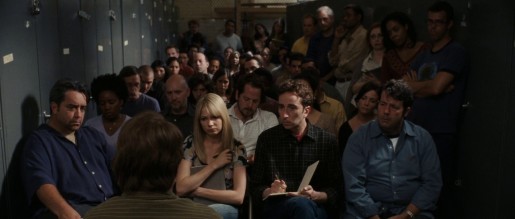
Recommended Reading:
“Oldboy” (2003) Introduction at the Vancity Theatre
“Synecdoche, New York” (2008) – Original 2008 Movie Review
Over the summer I accumulated one-fifth of material for this “Synecdoche, New York” introduction. I had originally intended on telling my story chronicling the after-hours adventure I spent in New York before the morning I was to appear in the “Infectious Diseases in Cattle: Bloggers’ Roundtable” shoot back in January 2009 that weirdly feels more fitting thematically with the film for me. One day I will publish it – sooner or later.
*During the end credits this time, a couple sitting next me held each other very tight as Deanna Storey sang, “Life is precious. Every minute with you in it.”
My sister, who appreciated the movie more on her second viewing since 2008: “It’s a great movie, but it makes me want to drink bleach.”
I recommended she watch “The Life of Chuck” (2024) instead.
**Question: Which Dianne Wiest movie resonates with you the most? “Hannah and Her Sisters” (1986)? “Edward Scissorhands” (1990)? “The Birdcage” (1996)? “I Am Sam” (2001)? Or “Synecdoche, New York” (2008)?
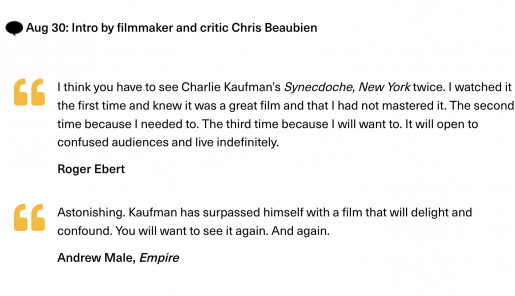
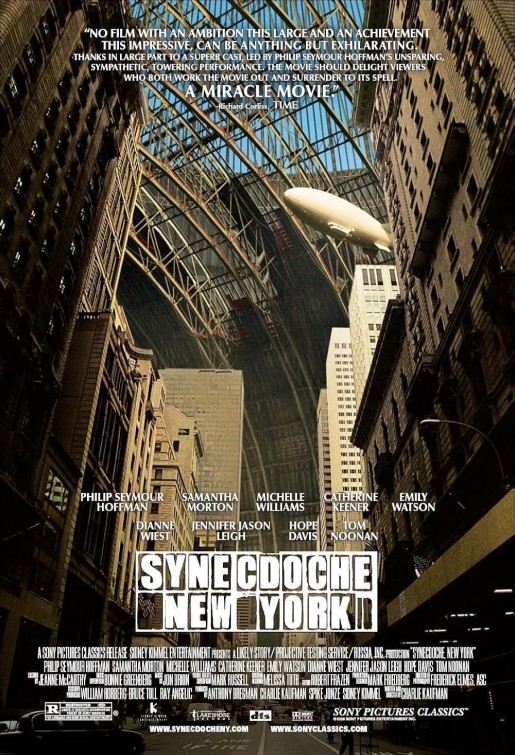
© 2008 – 2026, CINELATION | Movie Reviews by Chris Beaubien. All rights reserved.


